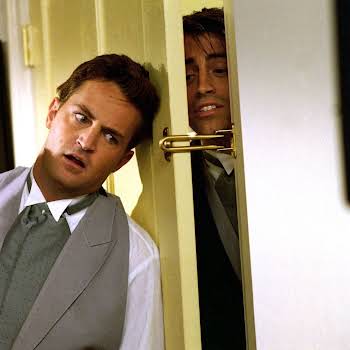By Rhona Mcauliffe
12th Nov 2016
12th Nov 2016
We’re never going to please all of the people all of the time, right? So why not just speak your mind, says Rhona McAuliffe and welcome niche appeal.
When I think of my wedding day – a fairly small but committed celebration on Italy’s Ligurian coast – one moment stands out as pedalling against the tide of love-oozing revellers.
?Oh. My. God.? My good friend said, grabbing me as I emerged from the church.
?I’ve just met your Uncle, he has exactly the same eyes as you. Now I know where you get it!?
?Get what?? I said.
?You know, the webbed skin that connects the bridge of your nose to your eye- lid?? She said. ?I always thought it was strange because it’s so much more common among Chinese people but now the mystery is solved!?
Cue me, five minutes later, contorting my face in a starkly-lit bar toilet to reveal The Webbing for the first time. And the twinkle of a moustache I should have taken care of earlier. Now, this is the friend who also told me never to wear cropped trousers because my ankles are too skinny and that my arms look like they belong on someone else’s (bigger) body. I always laughed off her comments as subjective – she says lots of complimentary things too – but my now-so- obvious eye-flaps proved otherwise. She just likes to lay it down.
And whether she’s saying it as she sees it or not, that is why I love her. Because you’re jolted from the fuzzy, almost stupefying, surrealism of your wedding day, back to your raw, fish-related self. Lest you lose the run of yourself. Maybe I love this particular friend, who has never bowed out of a rigorous dance-off with Controversy, because I recognise a kind of kindred spirit. I don’t notice body stuff per se, unless you happen to have, for example, a nose growing out of your forehead, in which case I will rave about the advantages of having two noses and lament my boring, uni-nosed face, all to avert you feeling uncomfortable; which you were unlikely to be feeling prior to my reflexive dump. But that’s just day-to- day, low-level social awkwardness.
No, where we are similar is in our general lack of conversational censorship, and in my case, an apparent problem with choosing the right audience. Ok, so let’s play a game of Have You Ever to demonstrate.
Have you ever?
– Shared an X-rated story about a drunken teen member of your family – including some scenes of moderate nudity – with your eighty year old Grandfather?
– Initiated a (one-way) chat about masturbation at a school mums coffee morning?
– Hushed a table of twelve people to dramatically introduce a brilliant, if embarrassing, story your friend stars in – forgetting she told you in pain- of-death confidence – drum-rolling her in to fill in the gaps?
– Openly discussed details of your sex life and (intermittent) personal grooming in the presence of your mortified husband and/or family?
– Kicked off a breezy yet practical ?how would you like to be buried?? discussion, sitting next to a widow of five days?
And so on.
My mother spent much of my teens and twenties screeching ?what is wrong with you?? in cars and up the stairs post visits to my grandparents or larger family gatherings. But unless I had upset someone specifically – usually the friends whose secrets I live-streamed – I failed to see the problem. I was just keeping it real.
It never occurred to me that there are other ways to jazz up a sag in the conversation; that it is not my responsibility to fill every gap with a personal confession or bare-bulb interrogation; that where I am warmed and energised by the grit and kinks of real life, many, many others are not. Some people are actually very private. I know! It was a revelation to me too.
Once I’d made amends with those people, I started to visualise a ?not your business? box in an alarmed storage facility at the back of my brain for any incoming purges. This means I will now never publically discuss your intimates.The downside is, I have also likely forgotten them; unless you’ve dropped an absolute, corking banger. I’ll remember that.
I’ve come to admire the level of sophistication and control required to not over-share, to know your audience, to momentarily embrace inanity rather than stoke it. I’ve grasped that full disclosure is not the only option. But, in my experience, declassifying your output spawns deeper and more honest relationships.
Take The Webbing, gifted to me on my wedding day. Only for that one friend – who swabs, probes and frisks anyone in her immediate – I would never have known my abstract, physical connection to my favourite uncle. That, in itself, is solid gold. Yes, you have to develop skin like a rhino to roll with it but the pay-off is banter that is deliciously unpredictable, confronting and always entertaining.
If you’re into that sort of thing.























